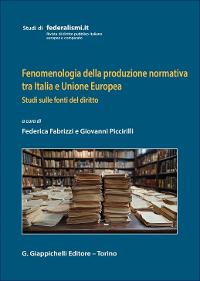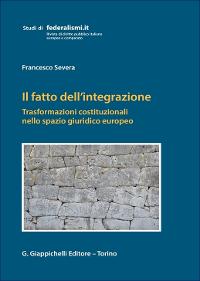
Log in or Create account
FOCUS - I controlli della corte dei conti e i complessi equilibri del sistema delle autonomie N. 28 - 28/10/2022
L'incidente di costituzionalità sollevato dalla Corte dei conti in sede di parifica dei rendiconti delle Regioni: alcune osservazioni dalla prospettiva delle Assemblee legislative regionali
Abstract [It]: La ormai consolidata legittimazione della Corte dei conti a sollevare questioni di costituzionalità in sede di parifica dei rendiconti regionali risulta ancorata, dalla giurisprudenza costituzionale, al carattere di “giudizio” del procedimento, ai requisiti di terzietà e imparzialità del giudice contabile, al rispetto del principio del contraddittorio ed alla natura strettamente ed oggettivamente normativa del criterio di giudizio. L’attività della Corte dei conti cd “refertuale-collaborativa” in materia, nei confronti dell’Ente direttamente interessato, pare quindi da riferirsi esclusivamente alla relazione che accompagna la decisione di parifica, nella quale la Corte formula le sue osservazioni in ordine alla legittimità e alla regolarità della gestione e propone eventuali misure correttive tese a garantire l’equilibrio del bilancio regionale. A fronte di queste premesse, l’articolo sviluppa un ragionamento in cui, ovviamente senza trascurare la necessità del rispetto dei vincoli di bilancio imposti dall’appartenenza italiana all’Unione Europea, a fronte della riforma del Titolo V della Costituzione, viene prospettata la necessità di un intervento normativo del legislatore statale, d’intesa con il sistema regionale, circa il “rito” ed i contenuti del giudizio di parifica, nel senso della “parità delle armi” tra le parti, anche al fine di evitare che in ogni campo (anche statale) risultino indebite “zone d’ombra” potenzialmente esenti dal vaglio di costituzionalità.
Title: The issue of constitutionality raised by the Court of Auditors when auditing the accounts of the regions: some observations from the perspective of the regional legislative assemblies
Abstract [En]: The well-established legitimacy of the Court of Auditors to raise questions of constitutionality in the context of the auditing of regional accounts is anchored, according to constitutional case law, to the “judgement” nature of the proceedings, to the requirements of impartiality and impartiality of the accounting judge, to respect for the principle of cross-examination and to the strictly and objectively normative nature of the criterion of judgement. The activity of the Court of Auditors, known as “referential-collaborative” activity in the matter, with respect to the body directly concerned, therefore appears to refer exclusively to the report accompanying the certification decision, in which the Court formulates its observations as to the lawfulness and regularity of the management and proposes any corrective measures aimed at ensuring the balance of the regional budget. Against this background, the article develops a line of reasoning in which, obviously without neglecting the need to comply with the budgetary constraints imposed by Italy's membership of the European Union, in the face of the reform of Title V of the Constitution, the need for a regulatory intervention by the state legislature is envisaged, in agreement with the regional system, regarding the “rite” and the contents of the judgement of parification, in the sense of “equality of arms” between the parties, also in order to avoid that in every field (including the state) there are undue “grey areas” potentially exempt from the constitutionality test. The well-established legitimacy of the Court of Auditors to raise questions of constitutionality in the auditing of regional accounts is anchored, by constitutional jurisprudence, to the “judgement” nature of the proceedings, to the requirements of the accounting judge's impartiality and third party status, to respect for the principle of cross-examination and to the strictly and objectively normative nature of the judgement criterion. The activity of the Court of Auditors, known as “referential-collaborative” activity in this matter, with respect to the entity directly concerned, therefore seems to refer exclusively to the report accompanying the parification decision, in which the Court formulates its observations as to the legitimacy and regularity of the management and proposes any corrective measures aimed at ensuring the balance of the regional budget. Against this background, the article develops a line of reasoning in which, obviously without neglecting the need to comply with the budgetary constraints imposed by Italy's membership of the European Union, in the face of the reform of Title V of the Constitution, the need for a regulatory intervention by the state legislature is envisaged, in agreement with the regional system, regarding the “rite” and the contents of the judgement of parification, in the sense of “equality of arms” between the parties, also in order to avoid that in every field (including the state) there are undue “grey areas” potentially exempt from the constitutionality test.
Parole chiave: costituzionalità, Corte dei conti, Assemblee legislative regionali, Titolo V, parifica di rendiconti regionali
Keywords: constitutionality, Court of Auditors, regional legislative assemblies, Title V, auditing of regional financial statements
Sommario: 1. Il giudizio di costituzionalità in via incidentale e principale. 2. Asimmetrie nell’impugnativa in via incidentale. 3. Giudice, processo e giurisdizionalità. 4. Dalla parifica del rendiconto dello Stato alla legittimazione della Corte dei conti a sollevare in via incidentale questioni di legittimità costituzionale. 5. La L. Cost. 1/2012 ed il D.L. 174/2012. 6. La giurisprudenza costituzionale e la “ridondanza”. 7. Ridondanza ed ampliamento del parametro di costituzionalità. 8. An e quantum (ma non quomodo). 9. Attività refertuale ausiliaria e collaborativa. 10. Parifica, giudici comuni e questioni di legittimità costituzionale. 11. Il carattere giurisdizionale del processo di parifica. 12. Necessità di un intervento legislativo.
NUMERO 29 - ALTRI ARTICOLI
-
ITALIA - DOTTRINA
Anti-mitopoiesi. Breve guida pratica al regionalismo differenziato con alcune premesse
ITALIA - PAPERIl museo: un ponte per l’innovazione, tra passato e futuro
-
ITALIA - DOTTRINA
Economia e ambiente nel “tempo della Costituzione”
ITALIA - DOTTRINALe fonti del diritto nello stato di emergenza in Slovenia
-
ITALIA - DOTTRINA
Le comunità energetiche: un nuovo modello di collaborazione pubblico-privato per la transizione ecologica
ITALIA - DOTTRINAIl caso Eco Oro Minerals Corp. v. Republic of Colombia: esiste una ‘buona legge’ nel diritto degli investimenti?



 Registrati
Registrati Login
Login
 Territorio e istituzioni
Territorio e istituzioni Lavoro Persona Tecnologia
Lavoro Persona Tecnologia America Latina
America Latina Africa
Africa Osservatorio di Diritto sanitario
Osservatorio di Diritto sanitario Osservatorio sul diritto elettorale
Osservatorio sul diritto elettorale Osservatorio Trasparenza
Osservatorio Trasparenza Human Rights
Human Rights Storico focus
Storico focus Riforme istituzionali e forma di governo
Riforme istituzionali e forma di governo Scarica il Documento integrale
Scarica il Documento integrale STUDI FEDERALISMI
STUDI FEDERALISMI





08/08/2025
30/05/2025
14/04/2025
24/01/2025
01/11/2024
30/08/2024
29/07/2024
03/06/2024
15/03/2024
29/12/2023
04/08/2023
05/06/2023
30/01/2023
09/12/2022
28/10/2022
28/03/2022
02/02/2022
17/01/2022
12/02/2021
18/01/2021
13/11/2020
12/10/2020
17/06/2020
01/06/2020
18/05/2020
04/05/2020
24/04/2020
10/04/2020
27/03/2020
10/04/2020
25/10/2019
27/09/2019
15/04/2019
25/03/2019
14/01/2019
14/12/2018
16/11/2018
09/11/2018
14/09/2018
03/09/2018
22/06/2018
23/02/2018
27/11/2017
02/10/2017